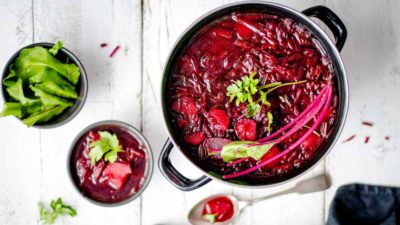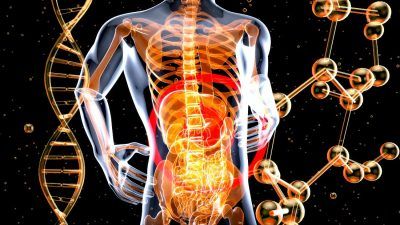The triangular relationship

Diet – gut microbiota – inflammation
Inflammation is a natural body response to injury or infection; however, low-grade inflammation over time is thought to play a significant role in the development of several chronic diseases.
There is increasing evidence that our gut bacteria (microbiota) play a significant role in inflammation, a key driver of many chronic diseases. This review examined the impact of three dietary patterns on the microbiota and how diet can influence inflammation and overall health. A Western diet – high in processed foods, red meat, sugars and unhealthy fats – was found to encourage the growth of harmful bacteria, which increase the risk of inflammation linked to obesity, diabetes, inflammatory bowel disease and cardiovascular disease.
In contrast, a Mediterranean diet, rich in fruits, vegetables, wholegrains, nuts and olive oil, supports a diverse microbiota, promoting anti-inflammatory effects and better health outcomes. Similarly, plant-based diets, abundant in fibre, polyphenols and plant proteins, boost the population of beneficial bacteria and promote the production of anti-inflammatory compounds while reducing harmful species.
The authors suggest that a further understanding of the connection between diet, gut microbiota and inflammation could be key to preventing and managing chronic diseases.
Randeni N, Bordiga M and Xu B. 2024 A comprehensive review of the triangular relationship among diet-gut microbiota-inflammation. International Journal of Molecular Sciences. 25 (17) 9,366.







